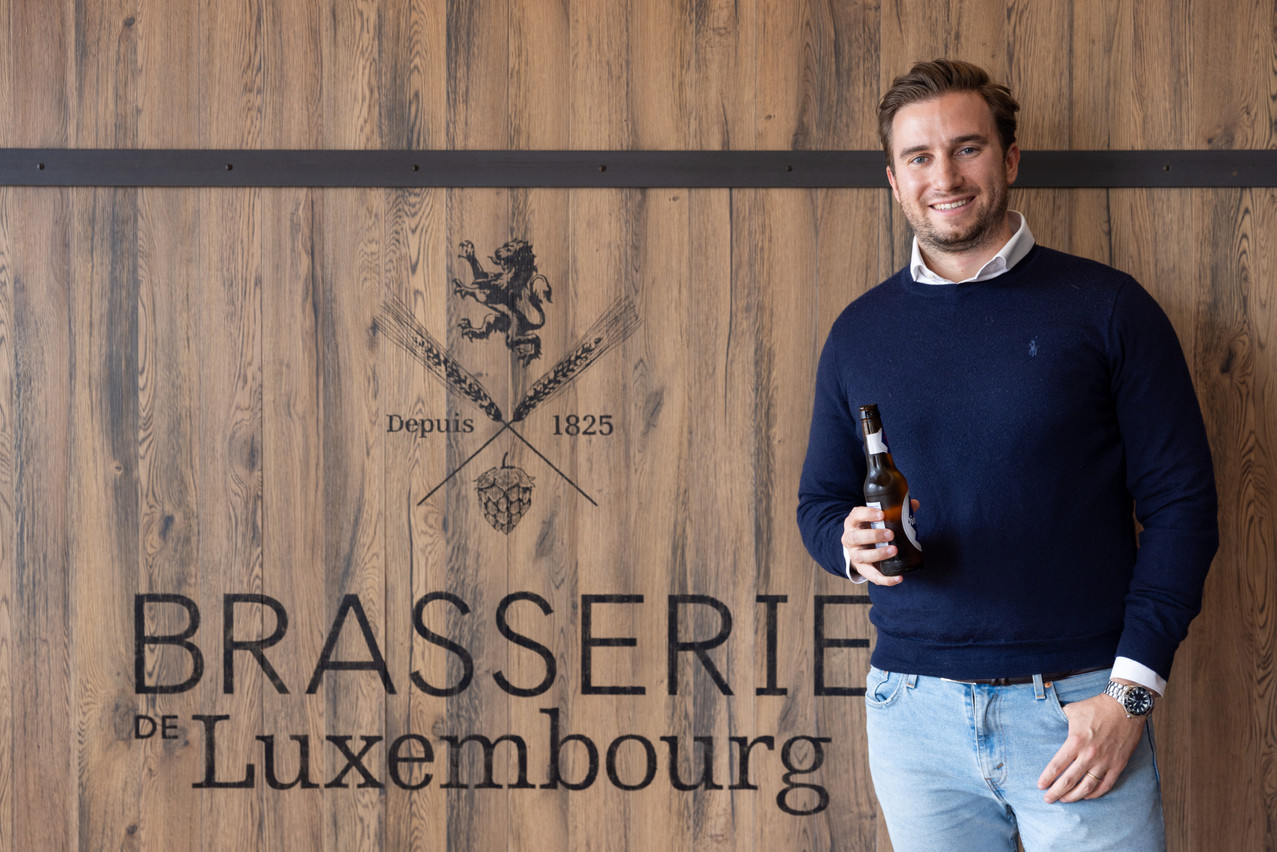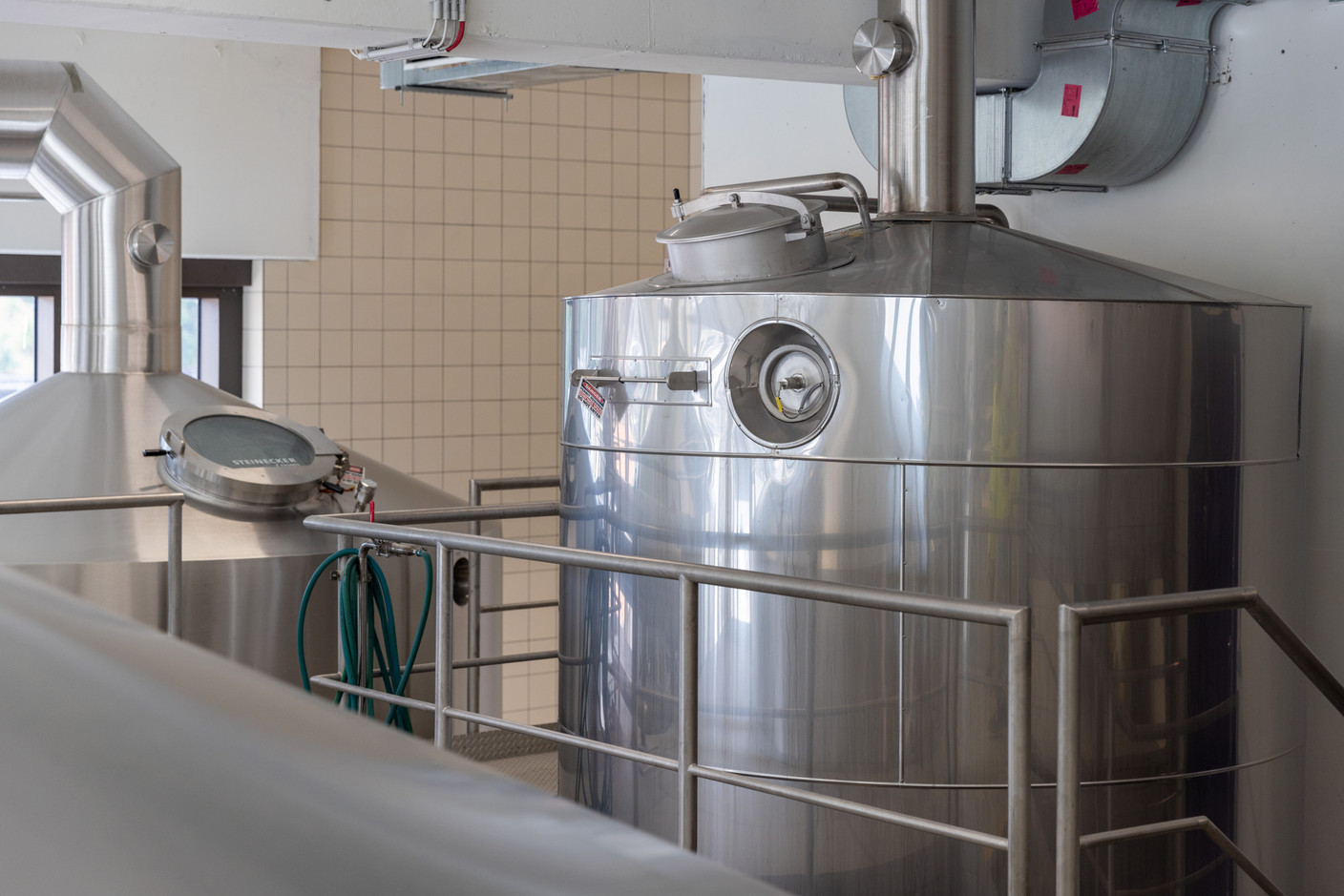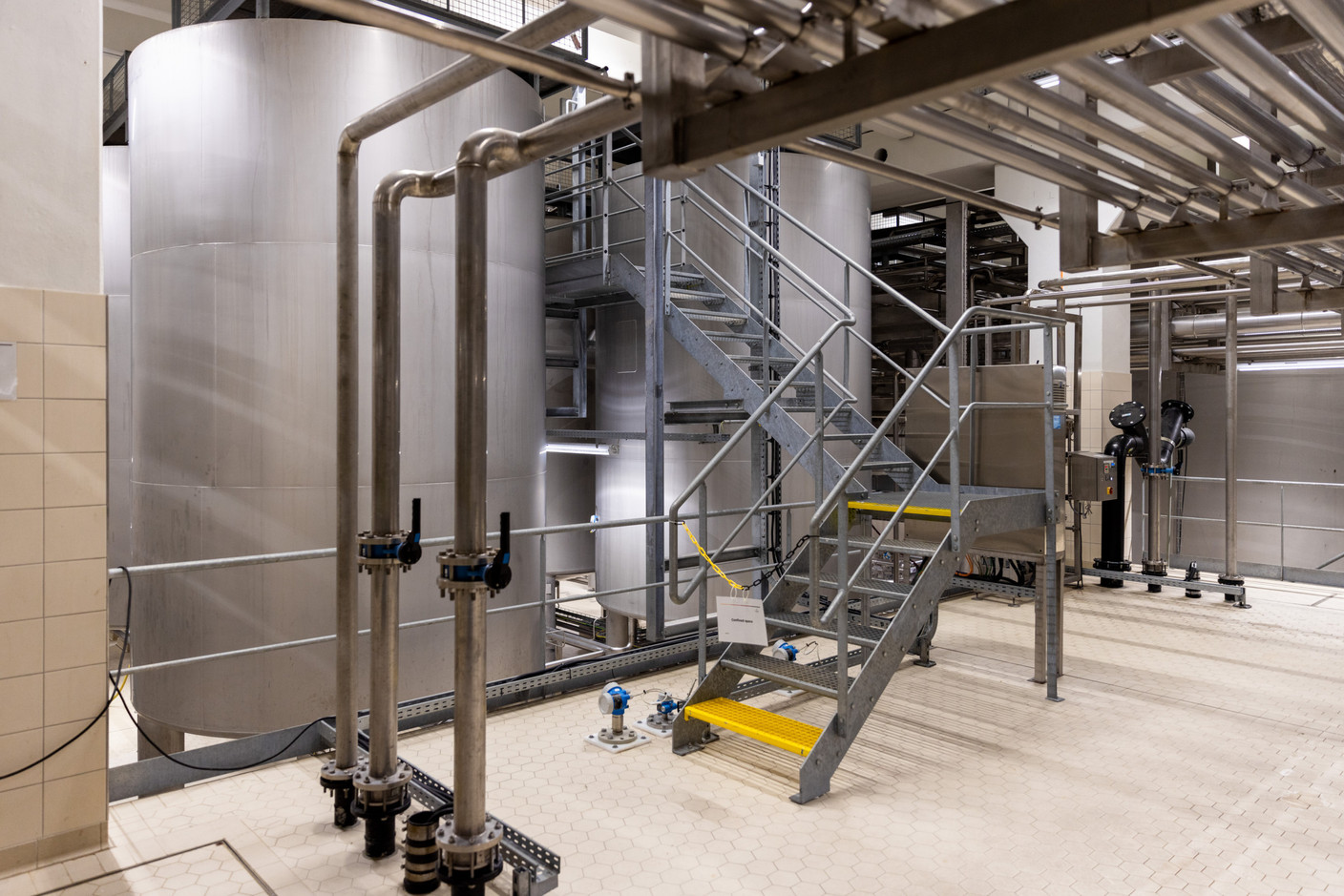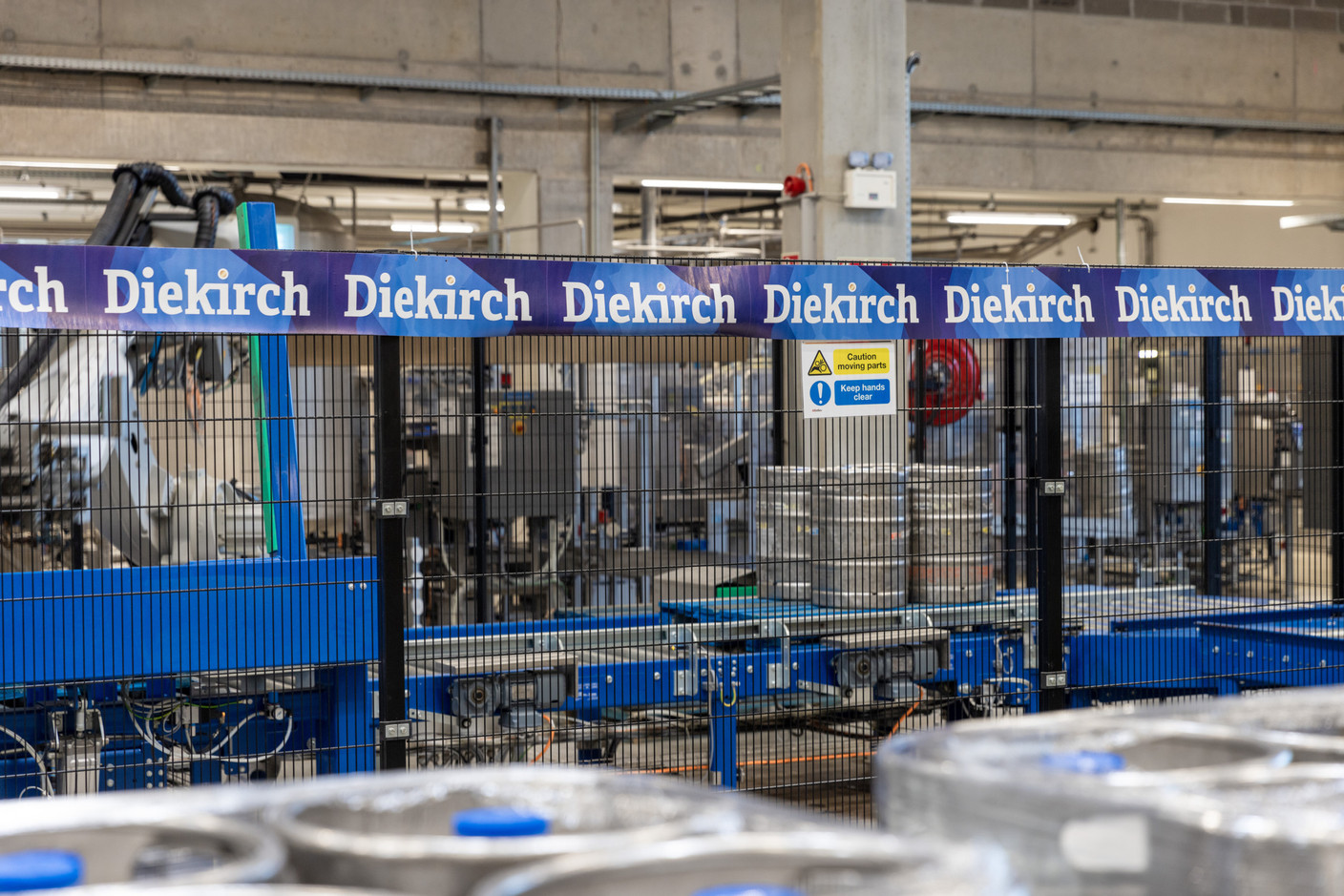From the scorching heat of the brewhouse, where temperatures exceed 40°C, to the coolness of the keg filling lines, Laurent Walthoff is now at home in Diekirch. He started his career at AB InBev as a sales representative in the hotel and catering industry in 2017, and left Belgium to join operations in the grand duchy.
The country, in his eyes, shares the same attachment to local lager, with one difference: “In Luxembourg, the draught beer market is much larger than in Belgium. There is a great demand for ‘perfect drafts’ and even 10-litre kegs that individuals install at home,” he explains.
While the brewery group dominates the market in Belgium, this is not the case in Luxembourg where, last year, accounted for 11% of beer sales, in third place behind Brasserie Nationale (26%) and imported beers, which have a strong position with 55% of the market. However, it should be noted that some AB InBev brands appear in this category, such as Jupiler, Leffe, Corona and Franziskaner.
Towards short-lived beers?
The manager lists his priorities as the local anchoring of the Diekirch brand, sustainability and innovation. The brewery’s ambition is to produce “zero carbon” by 2030. In the area of novelties, it has its eye on the “craft beers” segment: “We are going to try to make experimental brews in order to market them on the Luxembourg market in the future, we could compare this to a sort of ephemeral bar,” says Walthoff.
“Our ambition is clear: to become the most popular beer in Luxembourg,” he adds. Faced with the competition from cocktails, the brewery group has two weapons. Firstly, cocktail recipes that use Diekirch Radler as a base and, secondly, its own range of spirits with a rum, a gin and a vodka. The latter is made from the alcohol extracted from the 0.0% beers, in a circularity approach.
0.0% beers are on the rise
“ such as Radler are an important segment in which we are constantly investing,” explains Walthoff. The Luxembourg range currently includes Radler Lemon, Radler Agrum and Diekirch 0.0%. This summer, Corona 0.0%, another brand in the portfolio of the beer leader with a 29.3% market share worldwide, was added to the range.
“We’re seeing strong growth in the Corona brand; it’s becoming more and more popular, but it’s difficult to link that to current events,” he says carefully. What is certain is that the coronavirus pandemic has boosted sales in supermarkets, but has taken a toll on the hotel and restaurant industry. Moreover, café owners have won a legal battle with their landlord--the Brasserie de Luxembourg--over the payment of rent during lockdown.
Read also
“What is important is to say that we will respect the court’s verdict. But we would like to make it clear that the Brasserie de Luxembourg does not own any buildings under full management. We pay the rent paid by the tenant to the owner of the premises. If the operator no longer pays, we are in any case obliged to pay the owner, even in the difficult context of the pandemic,” Walthoff explains.
Luxembourg’s n°2 beer producer
The soaring costs of energy and raw materials have not spared the brewery in Diekirch: it is currently in the process of renegotiating prices with catering professionals, as well as with large-scale retailers.
The Luxembourg brewery Diekirch-Mousel has a production capacity of 150,000hl per year. It is the second largest producer with 38% of the 225,180 hl produced last year in Luxembourg, nearly 86,000 hl, according to data provided by the Brasserie Nationale.
“We are competitors, but we share the same goal: to grow the brewing culture in Luxembourg. I have a very good relationship with Mathias Lentz [director of the Brasserie Nationale],” says Walthoff.
After talks of a departure, AB InBev finally invested €25m in the construction of a new production site in Diekirch, which opened in 2019. A special feature is that the brewery handles the filling of the barrels, but not the bottling, which is carried out at the Belgian sites of Jupille and Leuven, after the reception of trucks with a capacity of 250 hl of Luxembourg brew.
The Brasserie de Luxembourg justifies this step by its desire to limit noise pollution, but also by reducing its floor space, since its former production site is to be transformed into . The company celebrated its 150th anniversary last year. It employs around fifty people in Diekirch.
This story was first published in French on . It has been translated and edited for Delano.






